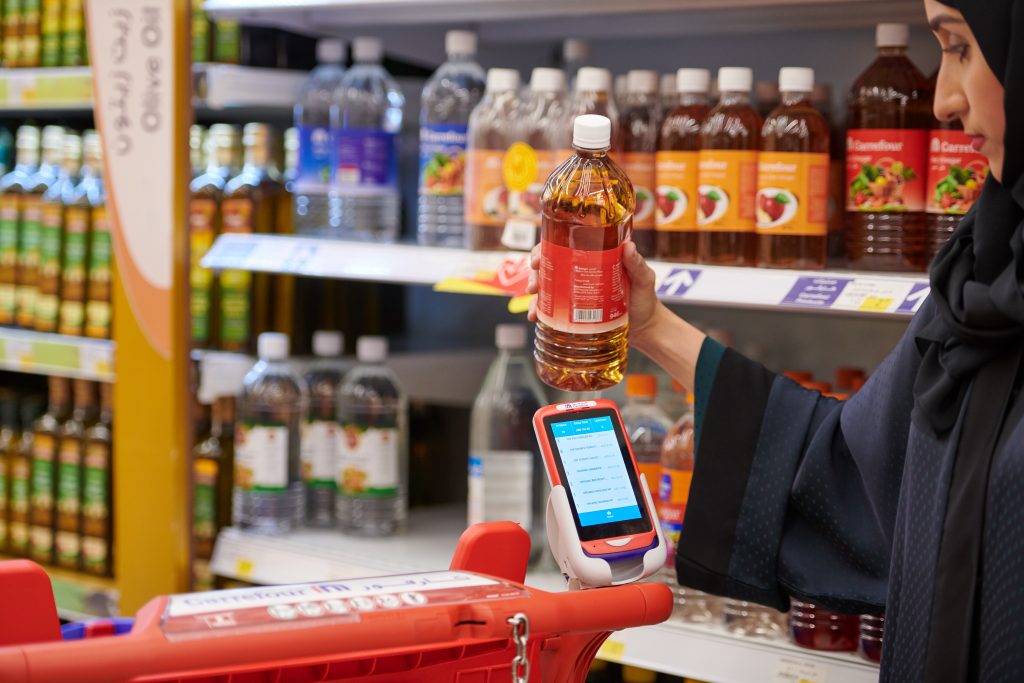
By Hani Weiss, Chief Executive Officer, Majid Al Futtaim Retail

Increasingly sophisticated ways of incorporating intelligent technology into grocery retail are driving the sector deeper into the digital transformation. This reality is not simply changing the industry but revolutionising it entirely. The fusion of digital and physical experiences is expected to accelerate further, according to Deloitte’s 2022 retail industry outlook report. The research identified retail industry leaders (respondents with aggregate scores in the top 25%) and industry laggards (those in the bottom 25%). Interestingly, when asked about the digital revolution, leaders and laggards are mostly aligned on how they plan to invest in 2022 around e-commerce, digital marketing, and automated checkout. However, crucially, they differ in their views and investments further into the future.
Over the next five years, the research indicates that leaders are buying into the prospects of digitising the physical world, including innovations like staff-free cashier-less stores. Conversely, it reveals that laggards are not expecting such trends to be adopted over the same longer-view timeframe. In an age where tech-driven disruptions to the retail industry are occurring faster, why aren’t all retailers embracing digital change as a constant and preparing for unexpected opportunities? And more importantly, what is the risk of becoming a retail laggard?
The pandemic taught the sector that competing in the next era of retail requires a long-term vision combined with the agility to pivot rapidly in the short term. With fast-changing purchasing behaviours, and as retailers become aware of the necessity to offer a unique customer experience to satisfy new needs, I believe that failing to transform now will have profound implications. Some aspects of digital transformation may seem like a fad, and indeed some may not survive the test of time. But failing to adapt to changes early is one of the fastest routes into decline as the evidence clearly shows that consumers today expect new solutions and experiences from their retailers.
Fundamentally, because of different shopping behaviours, the same customer might exhibit needs for physical experiential and exploratory shopping or simple and seamless online options. Or perhaps a combination at the same time. For example, self-checkout counters are becoming popular for customers increasingly seeking contactless physical shopping. And Scan&Go Mobile technology has been developed to enable customers to scan and pay for their products using their mobile phones without queueing in store. Clearly, this transformation includes innovating our existing physical stores to ensure they remain relevant in today’s digital-enabled world.

Mindset is at the core of this issue. In pursuit of our digital transformation, the first change and most significant challenge was in the hearts and minds of everyone at Majid Al Futtaim. As leaders, we must address mindset – culture and structure – and the need for co-existence. Moving from supplier and product-first to a customer-first focus is essential. This mindset shift will encourage innovation and dynamism across the organisation. Further, by restructuring the company to set up and integrate new business channels, we can bring traditional retailers together with technology disruptors to supply new consumer demands and anticipate and deliver solutions before even the consumer knows what they want.
Of course, most people have already reset their level of reliance on technology and digital platforms. Remote work, virtual schooling, and online entertainment now fill homes with more technology than ever. Retail is no exception. Still, while progress in this domain accelerates and consumers continue to flock towards innovations, grocery businesses taking part in the digital transformation game are yet to win by making a profit. This is why the long-term approach adopted by the Deloitte retail industry leaders will see them triumph over those who don’t move with the times.
As the CEO of a leading retailer, I understand there are risks for both leaders and laggards. Yet, I remain steadfast in my view of the remarkable future of retail technology in the Middle East. The latest research suggests that retailers should make significant investments that meet not only the needs of the present but also those of the future. Here at Majid Al Futtaim, we agree. And although we’ve not yet won the retail technology race, we lie ahead of the competition due to one critical factor: we started this transformation journey early in 2017.
Our five-year headstart in this space has positioned Carrefour as a digitally advanced and technologically driven grocery retailer capable of meeting new trends and demands before the competition. We’re excited to pioneer innovations, exploring Carrefour’s tech commitment, to develop and activate a host of new initiatives that will hit the market in the near future – including exciting last-mile innovations in the robotics and drone space. While retail leaders and those who lag behind are mostly aligned on how they plan to invest in 2022, I believe their differing long-term views and investments will be the crucial deciding factor in who seriously competes in the retail technology race. The early adopters of digital innovation, the risk-takers and those businesses that truly understand the need to transform and forge new paths will change the face of retail and ultimately come out on top.